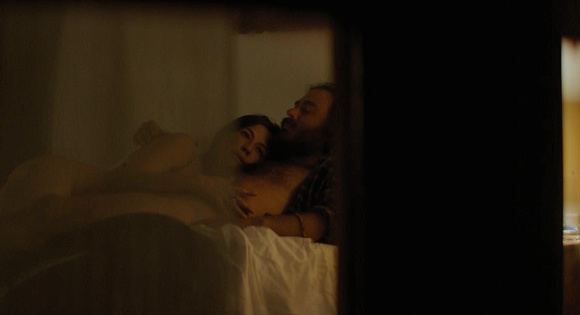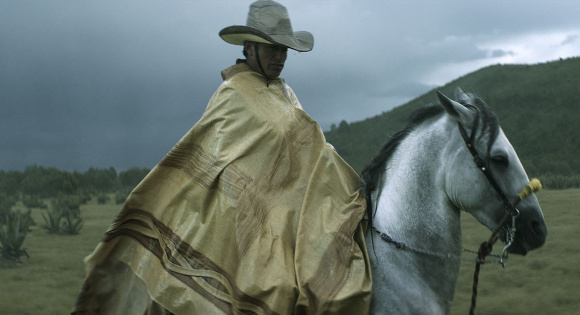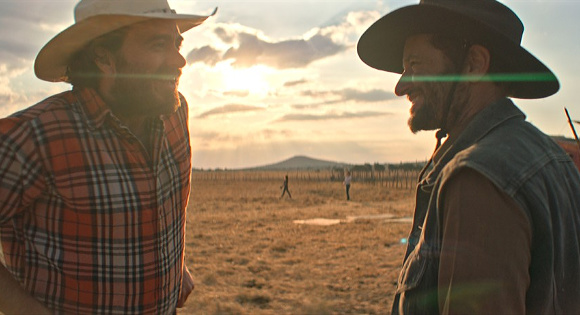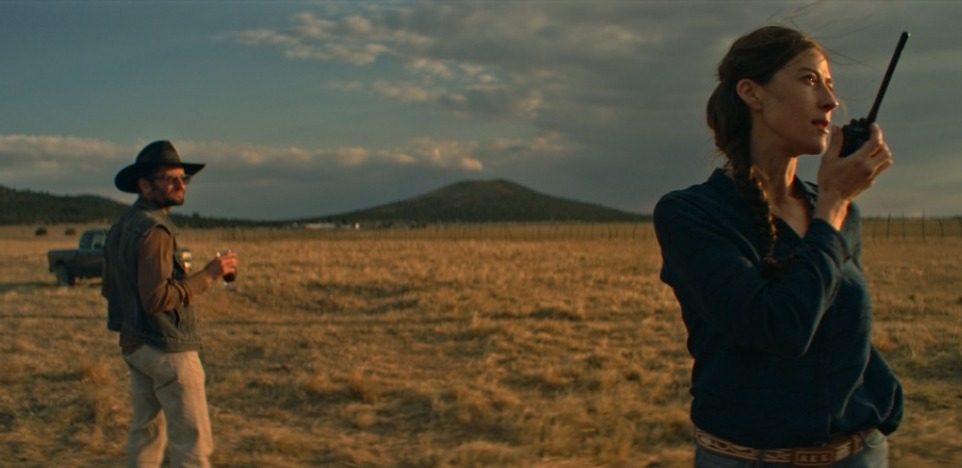It can be difficult to categorize a Carlos Reygadas film as simply “good” or “bad.” The director and the films themselves seem extremely disinterested in questions of easy adoration or dismissal and extremely interested in inviting viewers into a different kind of experience, one of durational and emotional testing. Reygadas’ characters are often in messy situations and, instead of offering clean narratives through the mess, he lets the mess sit, stagnant on the surface but bubbling beneath, and asks audiences to also spend time (and a good amount of time) in the muck.
Our Time, Reygadas’ sixth feature film, falls in line with these expected features, and it will not be for all tastes. The film’s running time in and of itself, nearly three hours, will be enough to turn off some, and the fact that much of that time is spent meandering through a marriage in various states of existential crisis, might turn off more. But for those with the stamina for investigating bad behavior, particularly masculinity in its various shades of emotional and physical violence, will find much to mine.

Reygadas has cast himself and his real-life wife Natalia López as Juan and Esther, a couple in an open marriage who run a fighting bull ranch in rural Mexico. They split duties, her mostly running the ranch’s daily activities and him selecting and raising the animals. Juan is also a renowned poet attempting to balance his creative passions and his practical duties. Few of these establishing facts are explained, with Reygadas characteristically allowing dialogue and imagery to swirl, trusting viewers to glean information from simply watching and listening to the quotidien moments in the first few scenes.
In fact, it takes a while to understand who the main characters are and what the main story is. As in other films, Reygadas opens the film with a long collection of scenes featuring many characters who will never be seen again, namely children and teenagers, all playing various innocent and not-so-innocent games in the muddy ponds and desolate grounds surrounding the ranch. It seems Reygadas wants viewers to delve into what games, particularly games between people who would pursue physical touch with one another, mean, how we manipulate and control the rules, and how we punish one another in animalistic ways when things don’t go our way.

Animals feature prominently throughout the film, all layering on meaning as the winding plot unspools (and though the credits make clear that no animals were harmed in the making of the film, sensitive viewers should take note that the depicted violence against and between animals is incredibly visceral and upsetting). Though Juan and Esther have agreed to their open marriage, Juan is driven to jealous extremes when Esther beds Phil (Phil Burgers), an American horse breaker. The facts that Juan raises fighting bulls and that Phil breaks horses, and that the two go head-to-head in a swaggering battle for Esther’s attention, might seem a bit on the nose. But this combination is also effective. The images of animals in various states of violent interaction juxtaposed with Juan and Phil’s initially human but increasingly beastly treatment of one another adds much-needed poetry to a story that might end up too tediously toxic without such artful commentary.

After Juan realizes how close Esther and Phil are growing, his behavior turns increasingly erratic. He insists that his real problem with the affair is that Esther didn’t tell him about its genesis from the start, but as Esther asserts more agency, it becomes clearer that a lack of control over her is Juan’s main issue. At times, it seems even Juan believes his own actions to be outlandish, but he still disappears into a kind of masculine madness, until it actually seems that, instead of Phil cuckolding him, Juan might just be cuckolding himself. Such is the danger of toxic masculinity, deaf to the nuances of emotion and empathy, and hellbent on grabbing back a sense of power, no matter how fallible and fragile, no matter the devastating consequences.
Reygadas refuses to afford his characters an easy way out, and as the film ends, the lack of resolution will be as vexatious to some viewers as Juan’s own siloed shame and sadness. Breathtaking photography and sound design, often in scenes depicting violence among bulls (and in one instance an ill-fated mule), add to the disorienting beastliness that envelops all three main characters, leaving viewers to ponder what separates the human ego from the animal ego, or whether, especially when it comes to lust and love, there is any difference at all.
